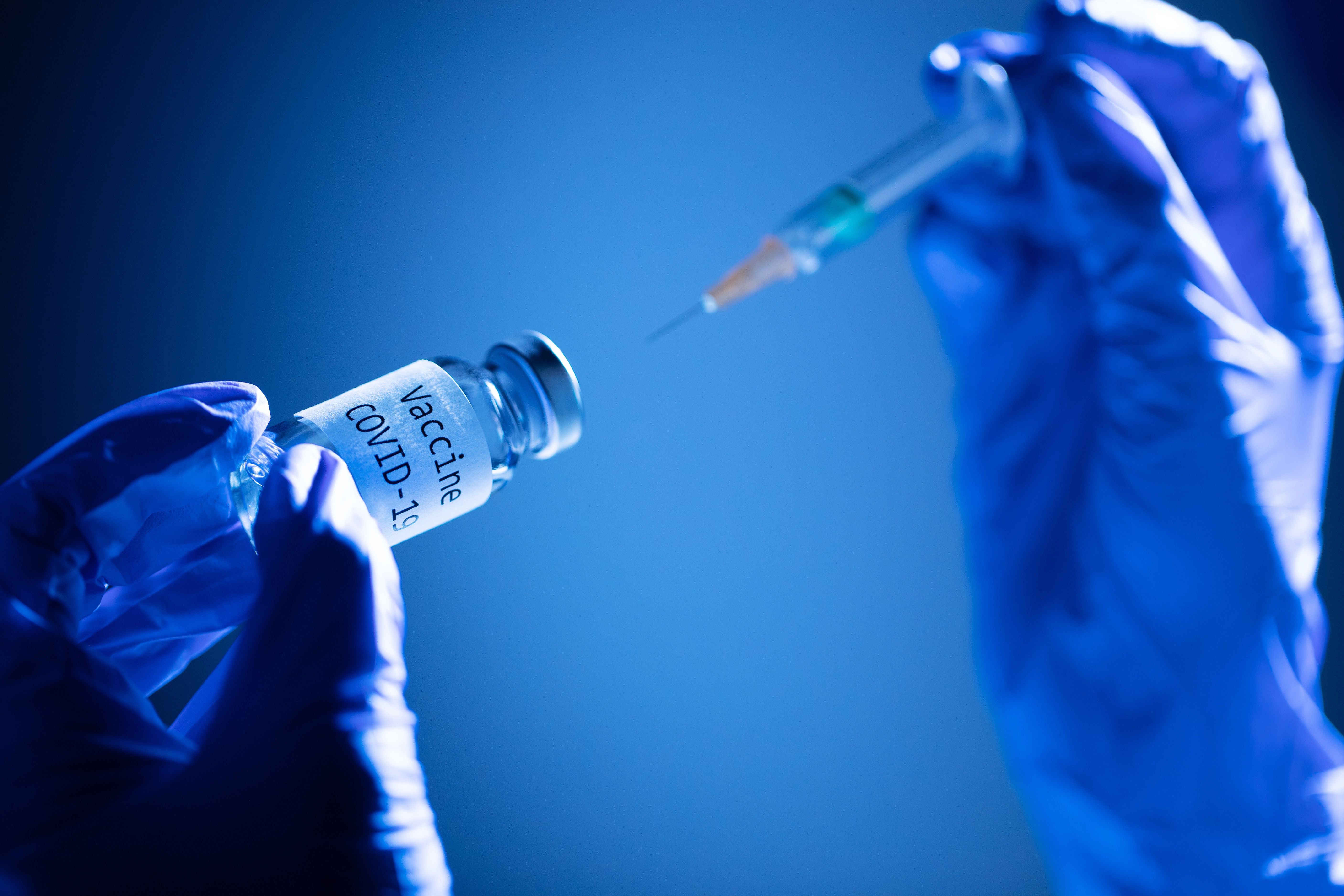WHO vaccine project in jeopardy as concerns grow over rollout for world’s poorest nations
The Covax Facility was established with the aim of securing access to vaccines for the world’s most vulnerable populations – but questions about its effectiveness are being raised. Samuel Lovett considers whether the project can still deliver on its promises


As the western world pushes ahead with its plans to vaccinate populations against Covid-19, the rollout of life-saving doses for the world’s poorest and most vulnerable people appears to be stalling.
Once hailed as a project to help the world tackle coronavirus as one, the global vaccine alliance spearheaded by the World Health Organisation (WHO) is facing a “very high” risk of failure, according to industry insiders and leaked documents seen by The Independent.
The Covax Facility was first established in April “to secure access to safe and effective Covid-19 vaccines” through a portfolio of candidates. It aims to deliver at least two billion doses by the end of 2021 – the majority of which, it’s hoped, will cover 20 per cent of people in 92 low and middle-income countries, mostly in Africa, Asia and Latin America.
However, questions are now being asked about whether the facility will be able to meet this goal due to a lack of funding, protracted discussions over supply agreements, the continuing threat posed by vaccine nationalism and the fact a number of its own poorer members have begun seeking alternative avenues for securing doses, opting to strike deals directly with manufacturers instead.
To date, the initiative has legally binding contracts for 1.27 billion doses, to be delivered by the likes of AstraZeneca, Johnson&Johnson and the Serum of Institute of India. Its remaining supplies have been secured through statements of intent, though nothing has been signed yet to avoid handing over money for candidates that may not be licensed.
So far, so good. But the reality is that the facility is still waiting for confirmation that its selected vaccines are effective. The Oxford jab is the sole exception – 170 million doses are to be delivered to the initiative – yet concern over its trial data has seemingly delayed its regulatory authorisation.
This means that, as countries like the UK, Canada, Switzerland and the EU27 roll out the Pfizer vaccine to their populations, there is no real indication yet as to when poorer countries dependent on Covax will have access. Nor has the programme confirmed any deals to physically ship out the vaccines.
To make matters worse, the programme is £3.69bn short of the money it needs to pay for its supplies throughout 2021, according to Dr Katherine O’Brien, the WHO’s vaccines chief.
The facility is certainly fighting a losing battle on the procurement front. Of the 7.48 billion doses set to be produced by manufacturers over the next 12 months, 51 per cent of these have already been pre-ordered by the world’s richest countries.
As a result, experts from the Johns Hopkins Bloomberg School of Public Health, in the US, have warned that almost a quarter of the world's population will not have access to a Covid-19 vaccine until 2022.
Separate research has said that nine out of 10 people in 70 low-income countries are unlikely to be vaccinated throughout next year.
According to a recent internal report compiled by Gavi, which co-leads the Covax Facility alongside the WHO and the Coalition for Epidemic Preparedness Innovations (Cepi), the “risk of a failure … is very high”.
The report, seen by The Independent, explains that the facility has had “to navigate uncharted territory in securing equitable access to potential Covid-19 vaccines”.
If unsuccessful, it adds: “There is a very real risk that lower-income countries will be left behind, and the majority of people in the world will go unprotected.” A different Gavi document warns that some people in poorer nations could go without any vaccine access until 2024 if the project fails.
Gavi insists it is making “excellent progress in negotiating deals with manufacturers to meet our goal of two billion doses by the end of 2021.” A spokesperson for the organisation said the documents were planning for worst-case scenarios and are “by no means an assessment of the current status of Covax”.
Meanwhile, attempts to secure supply deals with Pfizer and Moderna for their vaccines – both of which have been approved for use in a number of Western countries – have proved challenging.
The Independent understands that Seth Berkley, CEO of Gavi, recently informed key figures in the Covax leadership that the programme would no longer be pursuing any doses from Moderna. Gavi said it was unable to comment on contract discussions.
Separately, the complications involved in storing the Pfizer vaccine at ultra-low temperatures – a requirement that many poorer countries cannot meet – are said to have hindered conversations between the manufacturer and Covax leaders.
Up to 30 million Pfizer doses are expected to be secured for the initiative, but it remains unclear at what cost and when this deal will be announced, with “legal wrangling” continuing to slow down discussions between the two parties.
According to one source, Pfizer has been going directly to member states of the initiative and offering dose prices lower than those provided through the facility. Gavi said that any deal struck with the pharmaceutical giant would match the costs seen in those bilateral agreements reached between Pfizer and governments.
Pfizer said it was committed to providing doses to poorer countries and that it was “eager to get a contract in place” with Covax.
Yet doubt continues to surround the project. Dr Tedros Adhanom Ghebreyesus himself, the director-general of WHO, is said to be concerned by the severity of the situation, according to one source briefed on weekly discussions between the WHO and its Covax partners.
Other senior WHO officials have admitted privately that attempts to fairly allocate vaccine supplies through the initiative are flawed. “The whole call for global solidarity has mostly been lost,” said Dr O’Brien during a recent internal discussion, a recording of which was obtained by the Associated Press.
During the Covax board meetings led by Gavi between 15 and 17 December, it’s understood that concern was voiced by the Bill & Melinda Gates Foundation that the programme needs to better communicate with governments, many of whom are unsure when they will be receiving their allocated share of doses, and at what costs.
An observer of the meetings claimed that Gavi is refusing to acknowledge the scale of the issue at hand or the concerns of its partners, and continues to insist the project remains “on track”.
To add insult to injury, countries involved in the facility have been begun considering alternative options for securing doses.
The Independent understands that Tunisia, one of the countries that was due to receive supplies at lower costs through the project, has reached its own bilateral deal with Pfizer.
Covax has been consistently undermined by rich countries that have hoarded vaccines in advance
This follows reports that Malaysia, Peru, and Bangladesh – all of which are signed up to the initiative – have similarly secured their own separate deals with drugmakers in the eventuality that the facility falls short.
Fears and warnings over Covax have been circulating for months now. Dr Anban Pillay, deputy director-general of South Africa’s Department of Health, said in September that drug manufacturers who have agreed to supply Covax would focus first on the deals they had struck with governments.
“This was suggested to me by some pharma companies, that they would first service their bilateral agreements and then pass the excess stock on to Covax,” he told The Independent. “So you may end up with a shortage if you’re sitting in Covax, which would be a problem if that’s how the market plays itself out.”
Cepi, which handles supply, says its research “showed that global manufacturing capacity is available” and that it has “contractual agreements with a number of companies in our portfolio” to provide percentage guarantees of their production output.
Heidi Chow, a senior policy manager at Global Justice Now, told The Independent that “Covax has been consistently undermined by rich countries that have hoarded vaccines in advance while pharmaceutical corporations have been happy to sell to the highest bidder”.
She said governments needed to address this imbalance, and called for the lifting of patent monopolies to enable the sharing of vaccine technology and widespread manufacturing of doses.
Despite the criticism and challenges it has faced, the Covax Facility still remains the world’s best hope of getting supplies to those who are in most need. Gavi has called for more patience, insisting that it will have a diverse collection of vaccines, including the Oxford jab, that it will be able to draw from once – and if – they are given the green light.
For now, Gavi and its partners are insistent that all 190 members of Covax will be able to access doses to protect their vulnerable groups in the first half of 2021, with initial deliveries due in the coming months. It adds that at least 1.3 billion doses will be made available to the initiative’s poorest 92 members by the end of next year.
But whether such targets are met, only time will tell.



Join our commenting forum
Join thought-provoking conversations, follow other Independent readers and see their replies
Comments